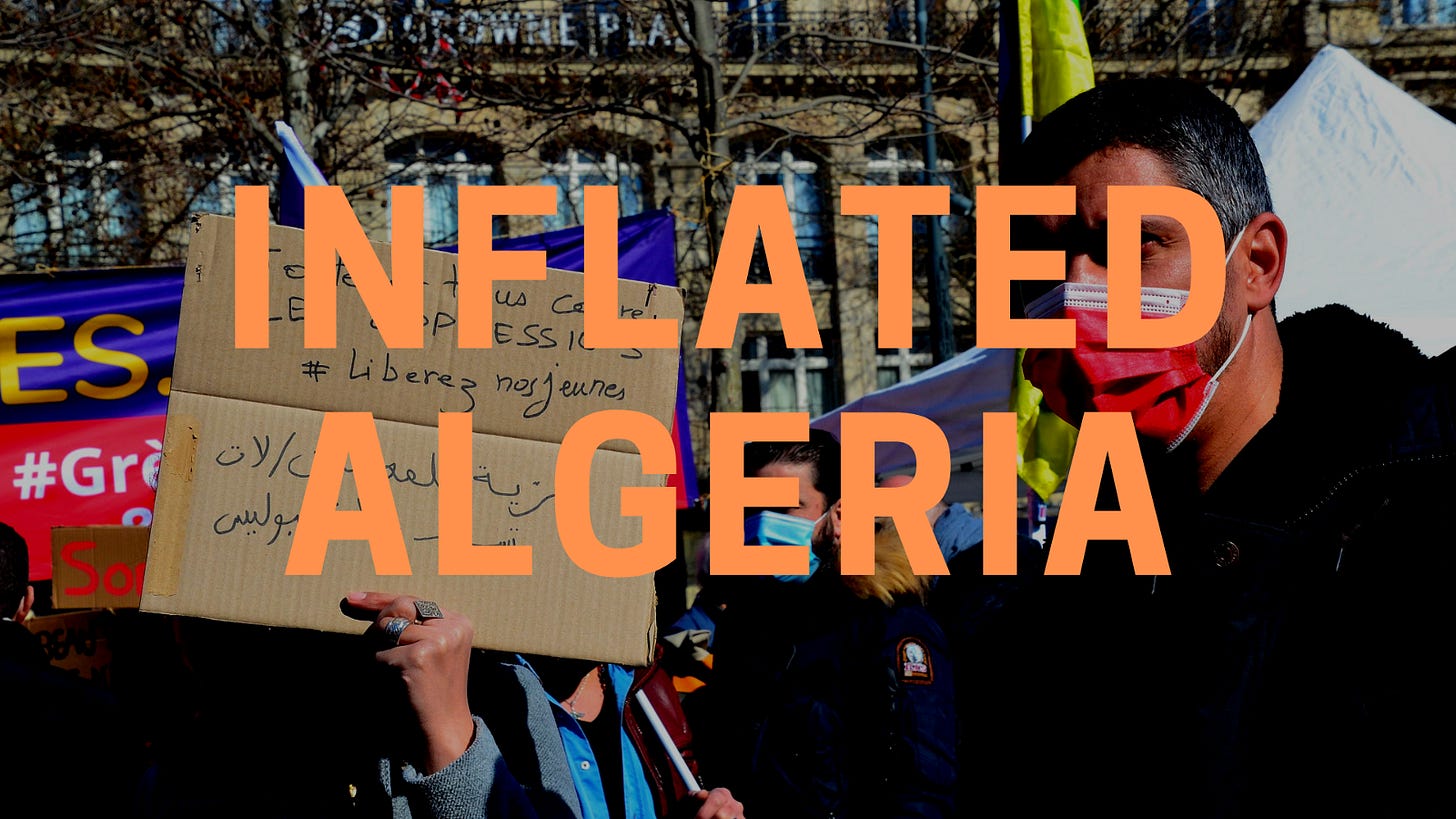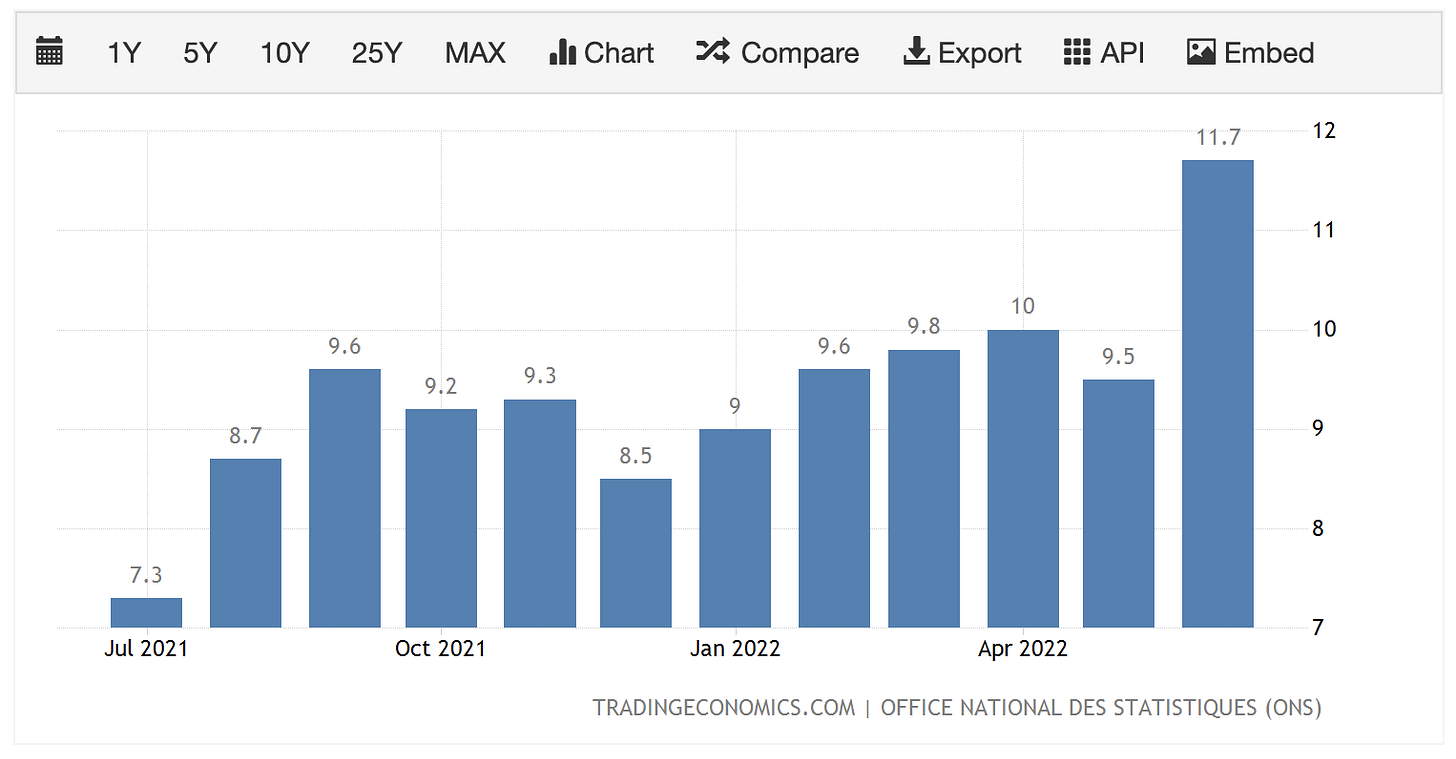
The following article has been written in collaboration with a colleague living in Algeria to share her experiences and how she tries to navigate living in an inflated and unstable government.
Algeria in the Headlines
Today’s post will shine the spotlight on Algeria.
I think you have seen Algeria more in the headlines compared to previous years.
The reason is simple: Algeria, being in the footsteps of Europe, could play a pivotal role in the European energy crisis triggered by Russia’s invasion.
Algeria has one of the largest natural gas reserves (11th) and is a major global supplier.
Hence, many European leaders are trying to mend ties with the once isolated country.
This year alone, the below leaders have visited Algeria:
Italian Prime Minister Mario Draghi
Venezuelan President Nicolas Maduro
Saudi Crown Prince Mohammed bin Salman
Foreign Minister of Portugal, Russia, and USA (first visit by a US secretary of state since 2014)
And finally, the Prime Minister of France Macron has decided to visit Algeria after 5 years. Actually, Algeria and France have a very complicated past. Some French people still see Algeria as a part of France (they call it “la France d’outre-mer”), and Macron himself has made very controversial statements. For example, he allegedly questioned whether Algeria existed as a country before the French invasion and accused them of strengthening "hatred towards France."
It is ironic because iconic French football superstars like Zidane and Benzema have Muslim Algerian backgrounds.
But dire situations call for immediate actions, and they don't have the luxury of fighting over pride. So in July 2022, Algeria struck a multi-party deal with TotalEnergies (France), Eni SpA (Italy), and Occidental Petroleum (US) to develop the Berkine basin to raise the natural gas supply.
While it is an important step to decrease dependence on Russian gas, the timeframe for the delivery is yet to be clarified.
But that is about the extent of the worldwide coverage of Algeria. No major publications report the domestic situation, so with the help of a female colleague living in Algeria, we can get a glimpse of daily life.
Inflation in Algeria: A real threat
In the case of Algeria, inflation has been increasing in the last few years. Since the health and oil shocks of 2020, the attention of households, companies, and other institutions have been drawn to inflation and the instrument used to measure it (the Consumer Price Index - CPI -) because of the price movements of significant goods and services which are eroding their purchasing power day after day and depriving investors of any economic viability.
Indeed, purchasing power in Algeria has recently dropped after the inflation rate reached 11.7% in June 2022. Experts believe this increase is due to the devaluation of the Algerian dinar, economic stagnation due to the Corona pandemic, and high unemployment rates.
This year, the government started handing out stimulus checks to Algeria's unemployed youth from 19~40. If you are eligible, the government will give you 2/3 the minimum wage or about $100/month to help weather the economic crisis.
How inflation affected our daily life
Each family has different consumption habits: some own a car and eat meat, others only use public transport or are vegetarians. Yet, inflation in the country has influenced almost every aspect of daily life. This has resulted in a major shock to commodity markets, disrupting global trade, production, and consumption patterns that will likely keep prices high for years to come. Keep in mind that if prices rise faster than wages, the amount of goods and services a household can buy decreases.
Most impacted aspect
Consumers are experiencing higher prices on food, gasoline, rent, and many other everyday goods and services. I think the most affected aspect is definitely food! As an illustration, in Algeria, a cup of coffee that used to cost $2 now costs $4. Food costs have doubled, and we now have to reduce the quantity of all our meals due to the country's high prices and food shortage, especially milk and flour.
Situation of family and friends
People whose wages and income cannot keep pace with inflation and those who are retired and living on a fixed income are penalized because the value of their savings and income falls rapidly in times of high inflation. So I can actually say that everyone is angry here. As a result, my family and friends are modifying their investment strategy by allocating capital to tangible assets like apartment buildings or hard currencies like gold.
Combatting inflation
Although inflation is a silent budget killer, we must not let it distract us. On the contrary, I think people need to dust themselves off and invest for the long term, as the situation could worsen in the next years! Personally, I started working online on different platforms to earn extra money. Cutting my expenses was also a big help!
Perspectives on future situations
Inflation rates may not matter much daily, but the long-term effects can be significant. I firmly believe people need to rethink their savings and spending choices. I am not very optimistic about the future, and I think people should prepare themselves for the worst!
Wait! Before you go, some fun facts about Algeria.
Before signing off, at least learn some facts about Algeria that you can use as an icebreaker at your next party.
Did you know...
1. Algeria is the largest country in Africa and the Mediterranean.
2. The capital of Algeria is Algiers, located on the Mediterranean coast.
3. Algeria is home to some of the oldest and biggest mosques in the world, including the Grande Moschea d'Algeria, which was built in 703 AD.
4. Over 80% of Algeria is desert.
5. Algeria's official language is Arabic, but French is also widely spoken due to the country's colonial history.
6. Algeria is known for producing dates and olives and its vast natural gas and oil reserves.
7. The Algerian flag is green and white with a red crescent and star in the center.
8. Camel rides are a popular tourist activity in Algeria's deserts.
9. In 2010, Algerian writer Ahlam Mosteghanemi became the first Arab author to win France's prestigious Prix Goncourt award for her novel Memories of the Flying Fish Girl.
FYI, the above fun facts were written by AI. Honestly, language AI has been freakishly good these days (especially with the advent of GPT-3). You can try your own prompts for free with this software. Try playing around!
Further Reading:




